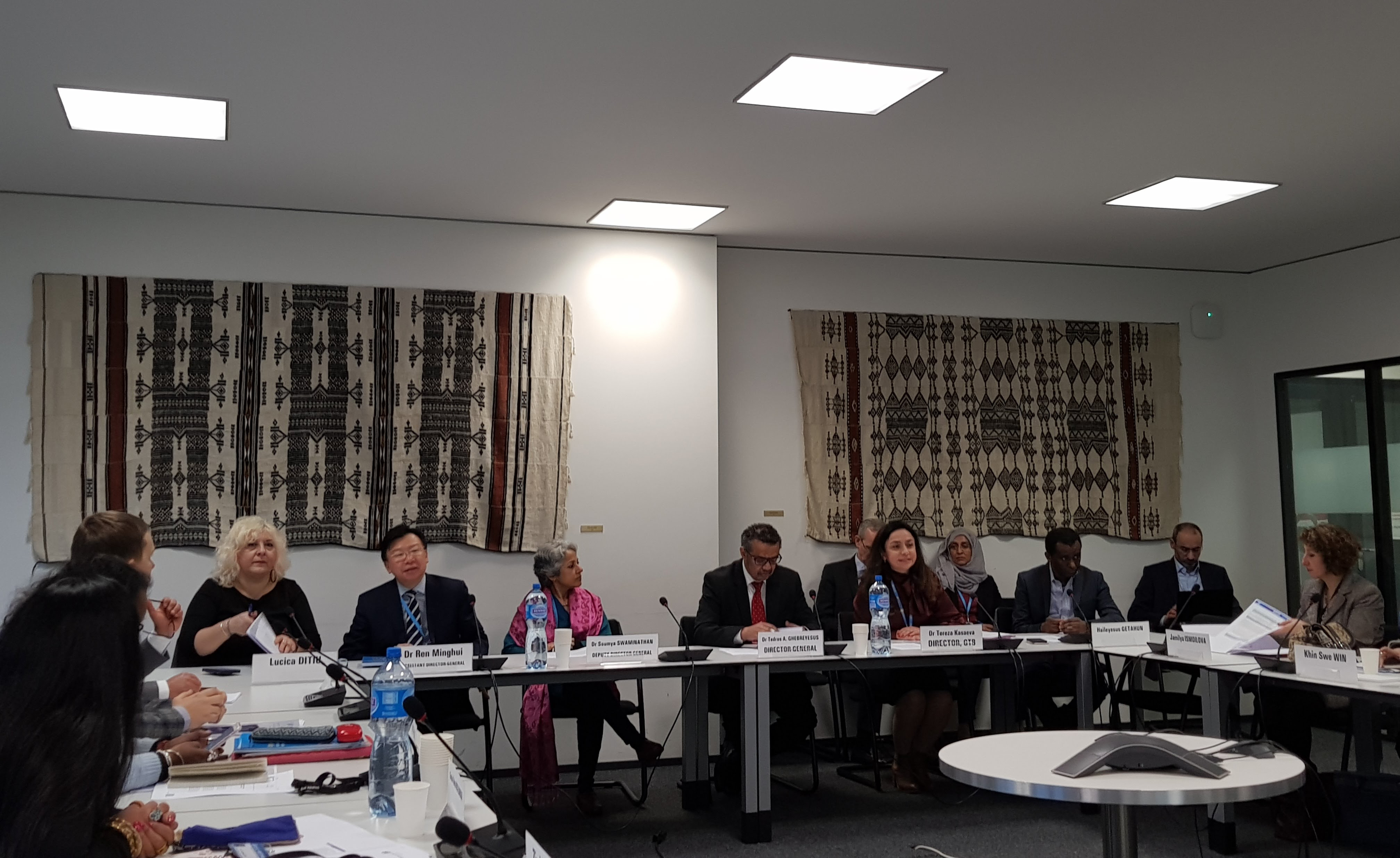WHO leadership committed to the dialogue with civil society on TB
2018 year is the key time in fight against tuberculosis –UN High Level Meeting on TB with the participation of Heads of States is forthcoming. WHO Director-General Dr. Tedros Adhan Ghobreius and Dr. Teresa Kasayeva, Director of the WHO Global TB Program have shown high commitment and willingness to engage in dialogue with civil society.
Such a dialogue took place within the meeting in Geneva on January 15-16. The outcomes were practical – based on the results of the work of a group of participants representing global and regional networks of activists and people with TB experience, formulated the key asks, namely:
- The DG provides his vision of civil society engagement in TB programmes with all WHO offices globally
- A letter from the DG to ensure:
1.1 WHO regional offices and country offices involve community representative in regional platforms, events such as NTP managers meeting, Regional Green Light Committee (rGLC), Regional Advisory Groups etc.
1.2 WHO National and Sub-national offices involve community representatives in TB programme reviews, missions, meetings etc.
1.3 Ensure that all Regional Offices and Country Offices create awareness and promote all WHO guidance and policies including WHO ethics guidance to implementing the End TB Strategy
1.4 Introduce various networks and coalitions working on TB such as GCTA, TBEC, ACT, TBAG UK, ACT AP, TB People etc.
- WHO should demonstrate its commitment towards the meaningful engagement of civil society and communities through adequate investment and resource mobilisation to build their capacity
- Provide sufficient resources for the core functions of the mechanism
- Provide new guidance and indicators to all NTPs on meaningful engagement of civil society
- Engage with relevant ministries and Head of States to emphasise civil society engagement, ensure country delegations have CS representatives in the country UN HLM TB delegation and provide resources for CS representation
- Strengthen civil society engagement in the development of WHO guidelines on TB
- Use the civil society engagement mechanism to consult on every TB policy, research, guideline, programme or process for input review on CRG
- WHO to work with the GF and partners to encourage countries transiting out of GF to develop sustainable financially-sound transition plans
- Ensure that the Essential Diagnostics List is completed as planned by April 2018
- Guarantee participation of the civil society mechanism in all TB related research discussions
- DG meets with the local civil society mechanisms during his visits
To learn more, please visit the link

